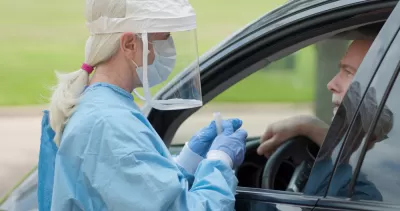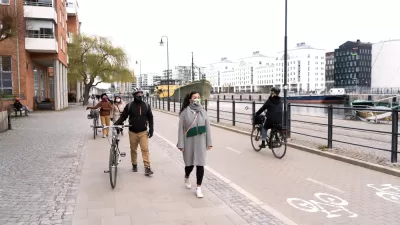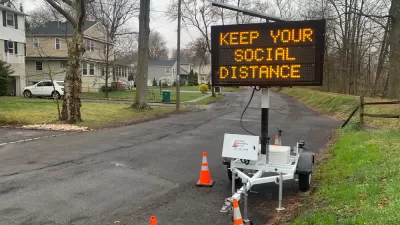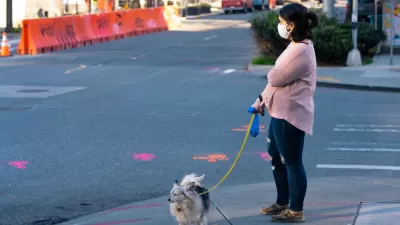Dr. Anthony Fauci, who is helping to lead the Trump administration's response to the pandemic, shared positive news with CNN on the progress of the vaccine project but admitted that due to two factors, it is likely not to achieve herd immunity.

"I am cautiously optimistic that we will have one or maybe more candidates of vaccines that could be available and be effective by the end of the year; the beginning of 2021," Anthony S. Fauci, director of the National Institute of Allergy and Infectious Diseases, told Elizabeth Cohen, senior medical correspondent for CNN, in an interview on Sunday.
How effective it would be is another matter.
"The best we've ever done is measles, which is 97 to 98 percent effective," said Fauci. "That would be wonderful if we get there. I don't think we will. I would settle for [a] 70, 75% effective vaccine."
Another infectious disease expert, Dr. Drew Weissman of the University of Pennsylvania, told the AP on Saturday that If it was only 50% effective, "that’s still to me a great vaccine."
The other issue that limits its effectiveness in protecting the population as a whole, what the Centers for Disease Control and Prevention refers to as community immunity, commonly called herd immunity, is the percentage of people who would willingly take the vaccine if available. To protect individuals unable to receive a vaccine, somewhere between 70-90 percent of the population would need to be immunized.
"A CNN poll last month found one-third of Americans said they would not try to get vaccinated against Covid, even if the vaccine is widely available and low cost," adds Cohen. If only two-thirds of the population were to take the vaccine that is at most 75% effective, it would then be "unlikely" that the U.S. will achieve sufficient levels of immunity to quell the outbreak, admitted Fauci.
He indicated that a major challenge is that "there is a general anti-science, anti-authority, anti-vaccine feeling among some people in this country -- an alarmingly large percentage of people, relatively speaking."
Rushed process?
However, the name of the vaccine endeavor, Operation Warp Speed, does not exactly inspire confidence that it would safe. The last time that the government attempted to deliver a vaccine well ahead of standard vaccine timelines was 1976 for a swine flu outbreak. "It was a total fiasco," reported for The Washington Post on May 1.
There were reports of sporadic deaths possibly connected to the vaccine. Cases of Guillain-Barre syndrome also emerged, and are still cited today by the anti-vaccine movement. Panic emerged, with dozens of states pausing vaccinations.
By December, following 94 reports of paralysis, the entire program was shut down.
So, what is a "normal timeline?" Ten years, according to one prominent World Health Organization official. "In the history of medicine, rarely has a vaccine been developed in less than five years," according to Kaiser Health News.
"The mumps vaccine—considered the fastest ever approved—took four years to go from collecting viral samples to licensing a drug in 1967," wrote Nsikan Akpan, a science editor at National Geographic, on April 10. "Considering the history and science behind making these drugs, 'a year to 18 months would be absolutely unprecedented,' one expert warns."
Related in Planetizen:
-
Pandemic Endgame, May 18, 2020
-
The Great Scandinavian Pandemic Experiment [includes a discussion of herd immunity through infection], May 13, 2020
FULL STORY: Fauci says Covid-19 vaccine may not get US to herd immunity if too many people refuse to get it

Planetizen Federal Action Tracker
A weekly monitor of how Trump’s orders and actions are impacting planners and planning in America.

Maui's Vacation Rental Debate Turns Ugly
Verbal attacks, misinformation campaigns and fistfights plague a high-stakes debate to convert thousands of vacation rentals into long-term housing.

Cuomo Is the Candidate of Both NIMBYs and Developers. What Gives?
In the New York City mayoral race, odd bedfellows align to preserve the housing status quo.

The Subversive Car-Free Guide to Trump's Great American Road Trip
Car-free ways to access Chicagoland’s best tourist attractions.

San Antonio and Austin are Fusing Into one Massive Megaregion
The region spanning the two central Texas cities is growing fast, posing challenges for local infrastructure and water supplies.

Charlottesville Temporarily Has No Zoning Code
A judge ordered the Virginia city to throw out its newly revised zoning code, leaving permitting for new development in legal limbo.
Urban Design for Planners 1: Software Tools
This six-course series explores essential urban design concepts using open source software and equips planners with the tools they need to participate fully in the urban design process.
Planning for Universal Design
Learn the tools for implementing Universal Design in planning regulations.
Heyer Gruel & Associates PA
JM Goldson LLC
Custer County Colorado
City of Camden Redevelopment Agency
City of Astoria
Transportation Research & Education Center (TREC) at Portland State University
Jefferson Parish Government
Camden Redevelopment Agency
City of Claremont





























